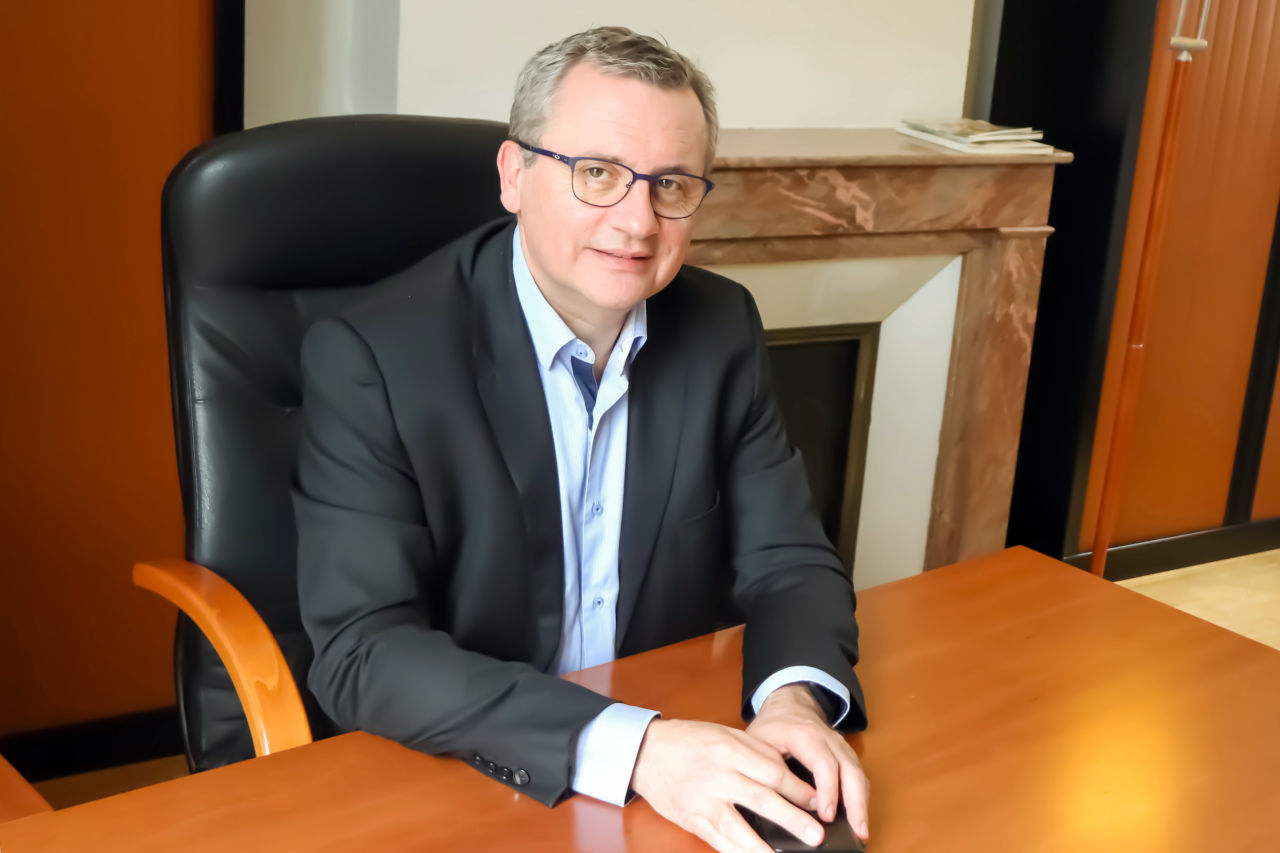“I can rely on competent administration and services.”
Since March1, Bruno Fabre, former vice-chairman of the board of directors, has held the position of chief operating officer (COO) at the University of Montpellier. A unique profile for a highly strategic role, which this professor of management sciences took the time to explain to us.

You have just taken up your position as Director General of Administration at the University of Montpellier. Can you explain what the role of a Director General of Administration entails?
The Director General of Services is, to use a metaphor, the conductor of the administration. His scope of action includes central services as well as services in departments, schools, institutes, and research units. His role is twofold: to participate in defining institutional policy and to implement it in both administrative and technical terms.
So it's both a political and administrative role?
Absolutely! We tend to forget the political dimension, but it is clearly enshrined in the texts governing the role of DGS. Alongside the president and vice presidents, he participates in defining institutional policy, even though he himself is not elected. This is what sets him apart from what were previously known as secretaries-general, who did not have this political dimension.
You just said you weren't elected, so how were you recruited?
This is a call for applications published on PEP, the public employment portal. Once the application has been accepted, the university president proposes the candidate's name to the Minister of Higher Education and Research, who then appoints them.
Is this position temporary?
I am on secondment for four years, renewable once, at the same university.
At UM, you are known as Vice President of the Board of Directors (VP-CA), a position you held between 2015 and 2022. Why did you decide to move tothe"other side"?
I accept this responsibility with great humility, and I applied for this position primarily because I know I can count on a competent administration and services. Secondly, it's true that as VP CA, I worked on most of the files with the DGS. Each of us had a well-defined but complementary role. Today, I am very familiar with the issues, so why not move tothe"other side" to implement a policy that I helped define as VP CA? And then I like challenges, and this one is a way for me to renew myself while continuing my work.
At UM, you are also known as a professor of management sciences, particularly at IAE. Is this the first time that the University has appointed a Professor EC) to this key position?
That's right, it's a first. It's good that in the history of an institution there can be a succession of DGSs with varied profiles. Pascal Beauregard came from university administration. Romain Jacquet was deputy director of a hospital, and I am Professor.
Was this choice considered unusual in French public administration?
Some may have concerns or see it as a challenge to the skills available within the administration. But that is not the case. I believe that diversity of profiles can only be a plus, and the IGESR report on the role of the DGS supportsthis view.
What does that mean?
The DGS must be able to address the entire university community. Not only administrative and technical staff, but also Professors, teachers, and researchers. However, the report highlights tension in this dialogue and recommends breaking down barriers between administrators and Professors. For example, we have to implement many reforms resulting from the multi-year research law (LPR), and being Professor things Professor because I speak the same language and understand their situation.
Do we also need to speak the language of BIATS?
Absolutely, and it so happens that in my previous roles, notably at the former UM2, I was Deputy Vice President in charge of BIATS between 2012 and 2014. I have a genuine appetite for administrative and technical matters, as those who have worked with me can attest, but it is on the basis of facts that I will be judged.
In your previous positions, you also held the title of interim administrator on several occasions...
Yes, three times. I was interim administrator of the Béziers University Institute of Technology (IUT) in the early 2000s when it became a fully-fledged IUT. Then in 2016, during the merger of the AES (administration, economics, and social sciences) and the ISEM (Montpellier Institute of Business Sciences), which resulted in the creation of MOMA. And finally in 2018, when the president appointed me administrator of the Faculty of Law and Political Science for nine months.
You are arriving in a context where our ways of working have been profoundly shaken by the health crisis. Does that change things for you?
The health crisis has challenged our ways of working and social relationships. In some cases, it has strained social ties. We need to rebuild these ties, but I am very optimistic on this front because new forms of solidarity have also emerged during the health crisis, as evidenced by the remarkable mobilization of Professors, teachers, and administrative and technical staff in central services and departments to ensure that students continue to receive their education.
The time has come to get together again. To rediscover moments of conviviality in the departments, to meet up, to chat... It's very important.